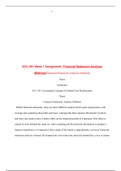Samenvatting
Full Summary Ethics, Globalisation and Sustainability UU
- Instelling
- Universiteit Utrecht (UU)
Full summary for the take home exam of Ethics, Globalisation and Sustainabilty from the minor Ethics in Modern Society. Full lecture summary, notes from the tutorials and notes from the prescribed literature.
[Meer zien]













